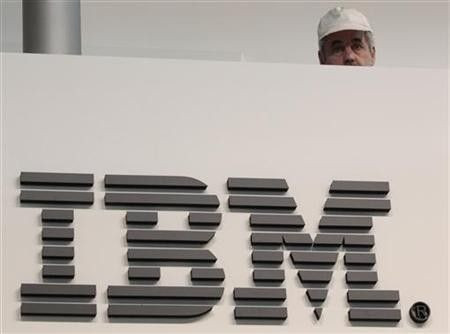IBM Drops 'Blue Waters' Supercomputer Project

International Business Machines (IBM) has terminated its contract with the University of Illinois to build a supercomputer for the National Center for Supercomputing Applications (NCSA), citing technical and financial constraints.
The project termed as "Blue Waters" would have developed a supercomputer capable of sustained performance of 1 petaflop on a range of science and engineering applications. A petaflop is a measure of a computer's processing speed and can be expressed as a quadrillion (thousand trillion) floating point operations per second (FLOPS).
"The innovative technology that IBM ultimately developed was more complex and required significantly increased financial and technical support by IBM beyond its original expectations. NCSA and IBM worked closely on various proposals to retain IBM's participation in the project but could not come to a mutually agreed-on plan concerning the path forward," NCSA and IBM said in a joint statement.
However, NCSA has expressed its willingness to continue the project, for which IBM was chosen as the supercomputer vendor in 2007. Blue Waters, which would have been one of the fastest supercomputers in the world, is supported by the National Science Foundation and the University of Illinois.
"NCSA is confident that its goal of building a sustained-petascale supercomputer remains achievable in a timely manner. NCSA is coordinating with the National Science Foundation to ensure project continuity and that the goals of the project are achieved," the agency said in a statement.
IBM will return the money received to date and NCSA will return equipment delivered by IBM per terms of the contract.
IBM, the University of Illinois, and NCSA will explore other opportunities to continue the strong working relationship established during the Blue Waters project.
Blue Waters project, which was expected to come online in 2011, would have helped researchers to predict the behavior of complex biological systems, understand the production of heavy elements in supernova, design catalysts and other materials at the atomic level, predict changes in the earth's climate and ecosystems, and simulate complex engineered systems like power plants and airplanes.
A supercomputer is a computer that performs at or near the currently highest operational rate for computers. A supercomputer is typically used for scientific and engineering applications that must handle very large databases or do a great amount of computation or both. In June, 2008, IBM's Roadrunner supercomputer was the first to break "the petaflop barrier".
K Computer, developed by Fujitsu, was recently hailed as the world's number one system, according to the latest edition of the TOP500 List of the world's top supercomputers released in June 2011. K Computer is at the RIKEN Advanced Institute for Computational Science (AICS) in Kobe.
IBM's Roadrunner was also in the list of top 10 supercomputers. The system, which has a performance of 1.04 petaflop/s, is at Los Alamos National Laboratory in New Mexico.
© Copyright IBTimes 2024. All rights reserved.





















